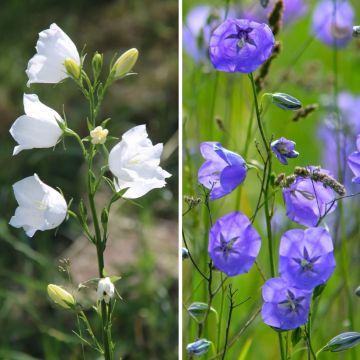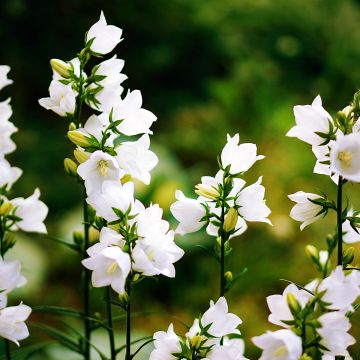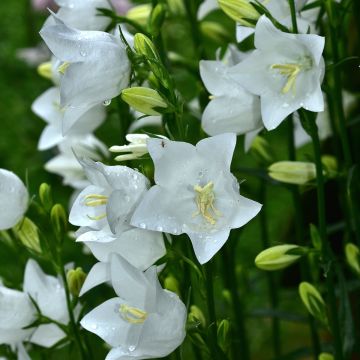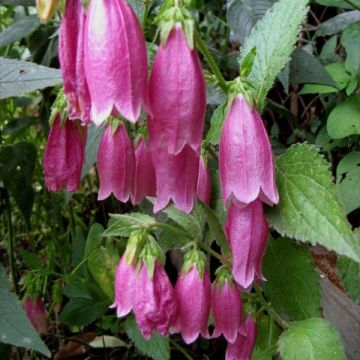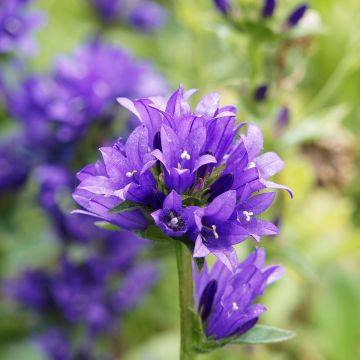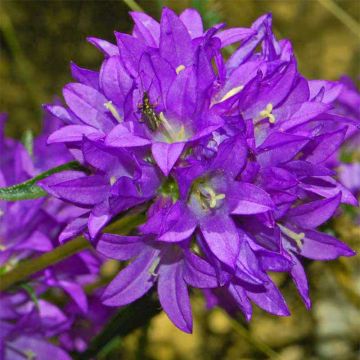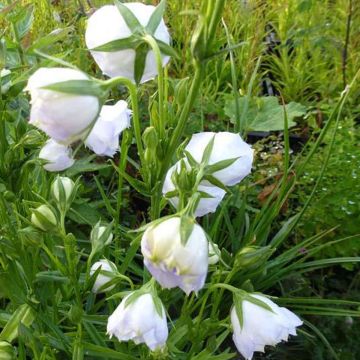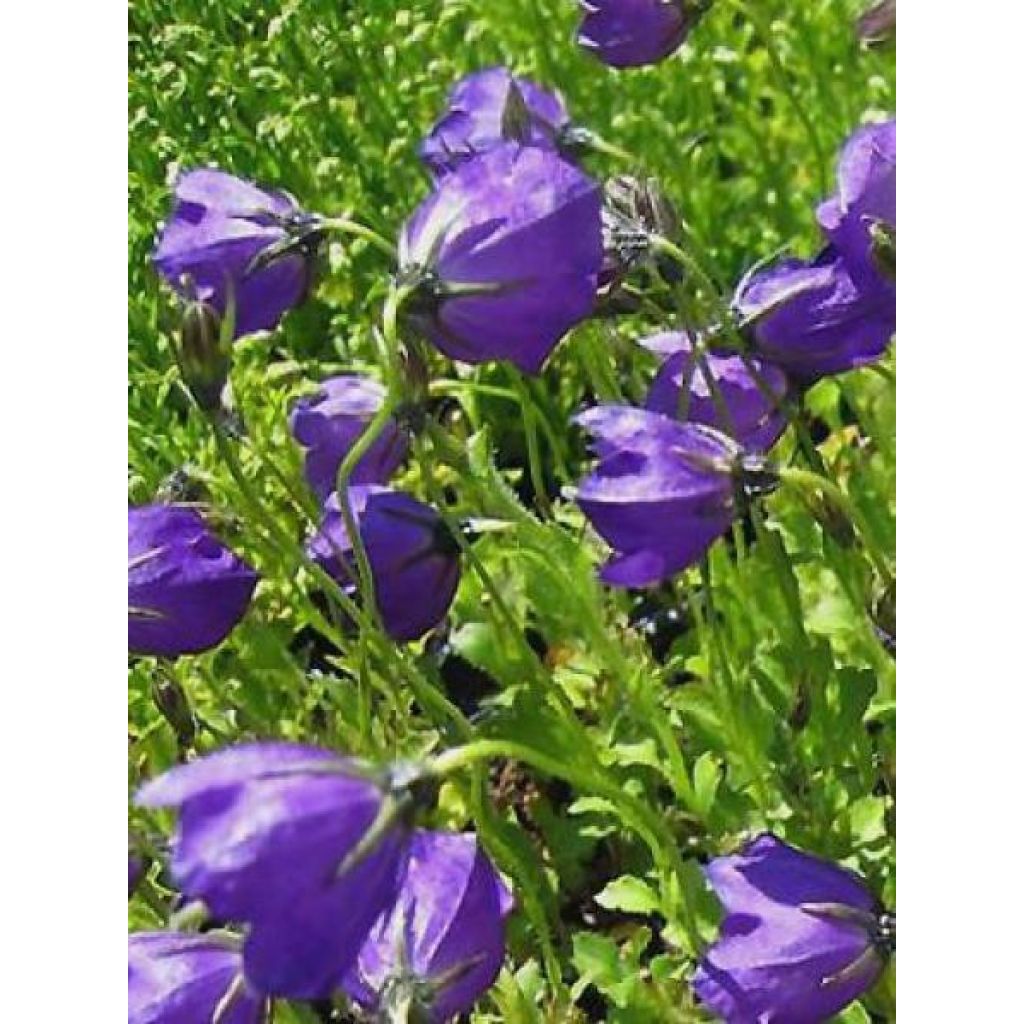

Campanula G.F. Wilson
Campanula G.F. Wilson
Campanula pulloides G.F. Wilson
Bellflower
A serious doubt about its potential recovery, impossible to know what is what, the clumps have no visible shoots - upon opening the package, the clumps had come out of the pots and so had the labels - the inside of the package was soaked.
Claire, 17/02/2024
Special offer!
Receive a €20 voucher for any order over €90 (excluding delivery costs, credit notes, and plastic-free options)!
1- Add your favorite plants to your cart.
2- Once you have reached €90, confirm your order (you can even choose the delivery date!).
3- As soon as your order is shipped, you will receive an email containing your voucher code, valid for 3 months (90 days).
Your voucher is unique and can only be used once, for any order with a minimum value of €20, excluding delivery costs.
Can be combined with other current offers, non-divisible and non-refundable.
Home or relay delivery (depending on size and destination)
Schedule delivery date,
and select date in basket
This plant carries a 12 months recovery warranty
More information
We guarantee the quality of our plants for a full growing cycle, and will replace at our expense any plant that fails to recover under normal climatic and planting conditions.
Would this plant suit my garden?
Set up your Plantfit profile →
Description
Campanula G.F Wilson is an old and excellent variety of hybrid bellflower that forms low tufts of very light green leaves. In summer the cushion is adorned with a multitude of small, deep blue bell-shaped flowers for several weeks. Outside of flowering, this perennial forms a neat, well-groomed tuft that remains decorative from early spring to late autumn. This hardy, easy-to-grow variety spreads and blooms in any well-drained soil that is not too dry, in the sun. Perfect for the base of rose bushes, in rockeries, on a slope, or along a path.
Campanula G.F Wilson is a horticultural hybrid. Under the name Campanula pulloides, it refers to a plant that is believed to be a hybrid of Campanula pulla and C. turbinata. The G.F Wilson variety is reputed to be the result of cross-breeding between Campanula carpatica and C. pulla. All these hardy plants, native to mountainous areas of Europe, belong to the bellflower family. It is a very low, dense, and compact plant that spreads through prostrate stems to form a beautiful cushion 10-15 cm (4-6in) high and 30 cm (12in) wide. Its deciduous foliage is composed of small light green leaves. Flowering begins towards the end of June and continues until August if it is not too dry. The flowers are small, round, and pendulous bells measuring 3 cm (1in) in diameter, in a deep blue-violet colour. They are very numerous and almost cover the vegetation. This variety is easily divided in March, with each new clump easily taking root in moist and light soil.
There is definitely a bellflower that will thrive in your garden, whether it is in the north or the south, in shade or sun, dry or humid. This genus is so diverse, that a description by species is necessary. This accommodating and floriferous G.F Wilson variety is equally happy in a pocket of soil between rocks in a rockery, as in a border, along a path, or at the base of a small tree. This plant covers the ground without being invasive. To extend the flowering period of your rockery or border, you can associate it with aubrietas, silvermound, rock cress, and more.
Report an error about the product description
Flowering
Foliage
Plant habit
Botanical data
Campanula
pulloides
G.F. Wilson
Campanulaceae
Bellflower
Cultivar or hybrid
Other Campanula - Bell Flower
View all →Planting and care
Easy to grow in the sun, in any well-drained soil, even limestone, but not too dry. This campanula enjoys being in the rockery, but it will also adapt elsewhere, as long as the soil is not too compact and waterlogged, both in summer and winter.
Planting period
Intended location
Care
-
, onOrder confirmed
Reply from on Promesse de fleurs
Haven't found what you were looking for?
Hardiness is the lowest winter temperature a plant can endure without suffering serious damage or even dying. However, hardiness is affected by location (a sheltered area, such as a patio), protection (winter cover) and soil type (hardiness is improved by well-drained soil).

Photo Sharing Terms & Conditions
In order to encourage gardeners to interact and share their experiences, Promesse de fleurs offers various media enabling content to be uploaded onto its Site - in particular via the ‘Photo sharing’ module.
The User agrees to refrain from:
- Posting any content that is illegal, prejudicial, insulting, racist, inciteful to hatred, revisionist, contrary to public decency, that infringes on privacy or on the privacy rights of third parties, in particular the publicity rights of persons and goods, intellectual property rights, or the right to privacy.
- Submitting content on behalf of a third party;
- Impersonate the identity of a third party and/or publish any personal information about a third party;
In general, the User undertakes to refrain from any unethical behaviour.
All Content (in particular text, comments, files, images, photos, videos, creative works, etc.), which may be subject to property or intellectual property rights, image or other private rights, shall remain the property of the User, subject to the limited rights granted by the terms of the licence granted by Promesse de fleurs as stated below. Users are at liberty to publish or not to publish such Content on the Site, notably via the ‘Photo Sharing’ facility, and accept that this Content shall be made public and freely accessible, notably on the Internet.
Users further acknowledge, undertake to have ,and guarantee that they hold all necessary rights and permissions to publish such material on the Site, in particular with regard to the legislation in force pertaining to any privacy, property, intellectual property, image, or contractual rights, or rights of any other nature. By publishing such Content on the Site, Users acknowledge accepting full liability as publishers of the Content within the meaning of the law, and grant Promesse de fleurs, free of charge, an inclusive, worldwide licence for the said Content for the entire duration of its publication, including all reproduction, representation, up/downloading, displaying, performing, transmission, and storage rights.
Users also grant permission for their name to be linked to the Content and accept that this link may not always be made available.
By engaging in posting material, Users consent to their Content becoming automatically accessible on the Internet, in particular on other sites and/or blogs and/or web pages of the Promesse de fleurs site, including in particular social pages and the Promesse de fleurs catalogue.
Users may secure the removal of entrusted content free of charge by issuing a simple request via our contact form.
The flowering period indicated on our website applies to countries and regions located in USDA zone 8 (France, the United Kingdom, Ireland, the Netherlands, etc.)
It will vary according to where you live:
- In zones 9 to 10 (Italy, Spain, Greece, etc.), flowering will occur about 2 to 4 weeks earlier.
- In zones 6 to 7 (Germany, Poland, Slovenia, and lower mountainous regions), flowering will be delayed by 2 to 3 weeks.
- In zone 5 (Central Europe, Scandinavia), blooming will be delayed by 3 to 5 weeks.
In temperate climates, pruning of spring-flowering shrubs (forsythia, spireas, etc.) should be done just after flowering.
Pruning of summer-flowering shrubs (Indian Lilac, Perovskia, etc.) can be done in winter or spring.
In cold regions as well as with frost-sensitive plants, avoid pruning too early when severe frosts may still occur.
The planting period indicated on our website applies to countries and regions located in USDA zone 8 (France, United Kingdom, Ireland, Netherlands).
It will vary according to where you live:
- In Mediterranean zones (Marseille, Madrid, Milan, etc.), autumn and winter are the best planting periods.
- In continental zones (Strasbourg, Munich, Vienna, etc.), delay planting by 2 to 3 weeks in spring and bring it forward by 2 to 4 weeks in autumn.
- In mountainous regions (the Alps, Pyrenees, Carpathians, etc.), it is best to plant in late spring (May-June) or late summer (August-September).
The harvesting period indicated on our website applies to countries and regions in USDA zone 8 (France, England, Ireland, the Netherlands).
In colder areas (Scandinavia, Poland, Austria...) fruit and vegetable harvests are likely to be delayed by 3-4 weeks.
In warmer areas (Italy, Spain, Greece, etc.), harvesting will probably take place earlier, depending on weather conditions.
The sowing periods indicated on our website apply to countries and regions within USDA Zone 8 (France, UK, Ireland, Netherlands).
In colder areas (Scandinavia, Poland, Austria...), delay any outdoor sowing by 3-4 weeks, or sow under glass.
In warmer climes (Italy, Spain, Greece, etc.), bring outdoor sowing forward by a few weeks.






























